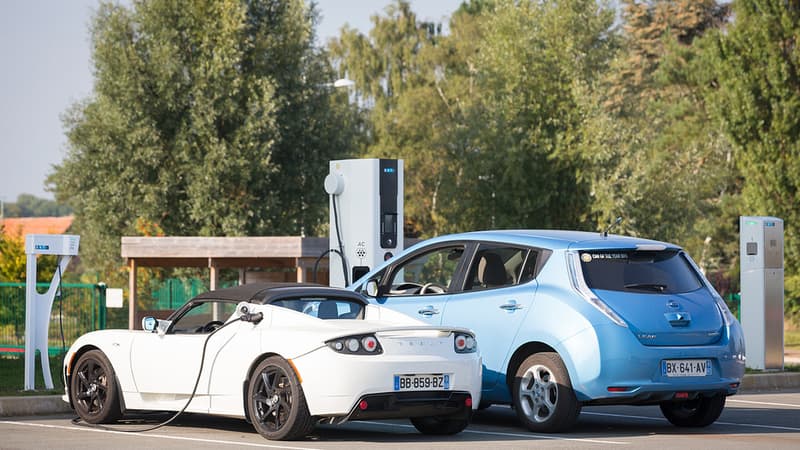100,000 electrical terminals in France. This symbolic threshold has been reached by France, marking a strong acceleration of the infrastructures necessary for the development of the electric car. From now on, the new goal is to reach 400,000 terminals in 2030, as Emmanuel Macron declared at the last Paris Motor Show.
“We are on a trajectory that allows us to do it,” he says in european 1 Clément Beaune, Minister of Transport.
Clément Beaune admits the delay brought up to now by France. But to achieve the new objective, he says that “we will give ourselves the means”.
It remains to be seen if these 400,000 terminals will be enough against the growing fleet of electric vehicles. According to data from AAA Data, there are currently 650,000 electric vehicles on the road in France. This figure could be multiplied by 10 by 2030. Between 2021 and 2022, electric vehicles purchased in France increased by 3.4% to reach 11.7%, notes AAA.
one million terminals
Avere estimates that it will be necessary to reach up to 480,000 charging points open to the public for light vehicles only. For Arthur Jouannic of the LCP Delta firm, it would take at least twice as many.
“More than 1 million terminals in 2030. This is essential. Today, given the current market conditions, we are planning around 600,000 terminals by 2030, which would be insufficient”, he says.
The multiplication of charging points is not enough, warn some players.
“It is also the quality of the charge that matters,” says Matthieu Dischamps, Managing Director France of Powerdot, one of the main operators of fast charging stations in France.
Currently, France has around 10% of fast charging points above 50 kW of power. These facilities allow you to recharge your vehicle in 20 or 30 minutes for an amount of about 30 euros, depending on the size of the battery.
Despite everything, France continues to lead in Europe. It is the second country in Europe in terms of public electrical terminals with 24 sockets per 100,000 inhabitants. France is behind the Netherlands (220 plugs per 100,000 inhabitants), but ahead of Germany, which has less than 20 terminals.
Source: BFM TV


